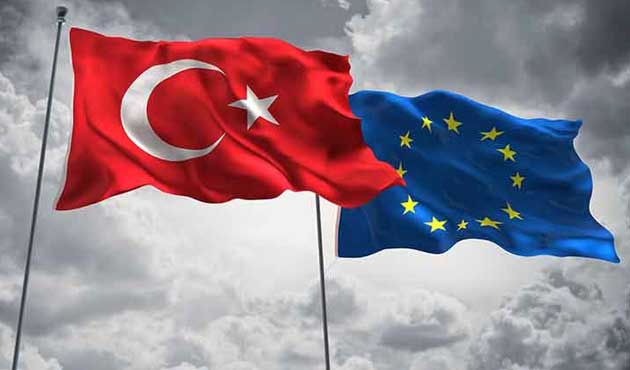
In the debates of the European Parliament (EP) last week, Turkey was often cited in the speeches by the European Union Commission President, High Representative/Vice President, and the deputies. Apart from Turkey, China and Russia were also among the countries whose names were frequently mentioned in the relevant debates and speeches. The views expressed regarding the escalating situation in the Eastern Mediterranean and the references to Turkey are not only illuminating, but also substantially thought provoking. For instance, the following remarks by the High Representative/Vice-President Josep Borrell on the role of Turkey in the Eastern Mediterranean at the EP plenary deserve a thorough analysis for the future studies:
“The subject of our discussion today is the preparation of the Special European Council, but focusing on the dangerous escalation and the role of Turkey in the Eastern Mediterranean. That is what I am going to try to do, although –as the Presidency of the Council has pointed out rightly- there are many other issues. Yesterday we had this important High-level talk with China, and, in general, Europe is facing a situation in which we can say that the old Empires are coming back, at least three of them: Russia, China and Turkey; big empires of the past who are coming back with an approach on their immediate neighborhood, globally, which represent for us a new environment. And Turkey is one of these elements that changes our environment”[1].
Borrell, repeating trite rhetoric of EU that they are “in full solidarity with Greece and Cyprus”, stated that there is still some time for hoping that “the European Council will be able to develop a constructive approach to our relations with Turkey, which are -I can say that firmly- at a watershed moment in history. The world will go one side or the other, depending on what is going to happen on the next days.” He repeated this point in the later part of his speech with the following cautionary words: “As I said, this is a watershed moment in history on our relations with Turkey.” Borrell, after the debate in the EP plenary, in his concluding remarks referred once again to the importance of the “Turkish issue and the Turkish membership” and stated the following:
“Our relations with Turkey, as I said, are in a watershed moment. This is one of the moments in history when decision makers have to go and face difficult decisions, trying to look for the best for all of us. I am sure that this is what the European Council will try to do at the next meeting.”
The European Commission President Ursula Von der Leyen has also referred to Turkey in her State of the Union address to the EP plenary on 16 September 2020. Her references to Turkey are quoted below:
“Turkey is and will always be an important neighbor. But while we are close together on the map, the distance between us appears to be growing. Yes, Turkey is in a troubled neighborhood. And yes, it is hosting millions of refugees, for which we support them with considerable funding. But none of this is justification for attempts to intimidate its neighbors.
Our Member States, Cyprus and Greece, can always count on Europe's full solidarity on protecting their legitimate sovereignty rights.
De-escalation in the Eastern Mediterranean is in our mutual interest. The return of exploratory vessels to Turkish ports in the past few days is a positive step in this direction. This is necessary to create the much needed space for dialogue. Refraining from unilateral actions and resuming talks in genuine good faith is the only path forward. The only path to stability and lasting solutions” [2].
As the above quotation reveals, the Commission President Von der Leyen has also repeated the EU’s rhetoric of “Our Member States, Cyprus and Greece, can always count on Europe's full solidarity on protecting their legitimate sovereignty rights” like a nursery rhyme. The striking point here is that the Commission President talked about the support of Europe, not the EU, to Greece and the Greek Cypriot Administration of Cyprus, as if the EU is synonymous with Europe. The Commission President should keep in mind that the EU does not cover all of Europe, nor does it represent Europe. The only such inclusive body is the Council of Europe with its 47 members of which Turkey is founding member. Careful regard to this distinction is vital to European peace and stability.
We can see from the above-mentioned remarks that the EU, as an institution, has adopted a “my member, right or wrong” mentality. Furthermore, this can be considered as an admission of the existence of an “EU first” policy. The Union looking out for the interests of its members is to be expected. However, this is no excuse for turning a blind eye to its members’ maximalist and jingoistic claims in the seas around Turkey to turn it into a landlocked country, the militarization of islands and islets in contravention of the Lausanne Peace Treaty, the blatant historic disenfranchisement of Turkish Cypriots and the deprivation of their right of a fair access to natural resources, and the scuttling of the Cyprus peace process by demonstrating a lack of will for compromise. The ultimate blame for the current impasse in Turkey-EU relations lies not with Turkey’s “revisionism”, but with the EU and its members’ intransigence at the face of the above-mentioned facts. EU’s irresponsible policies towards both its members and Turkey will lead the EU nowhere other than dragging the Union into unnecessary conflicts.
The EU has so far approached Turkey in a condescending, even a humiliating manner. It is no longer possible for the Turkish public to ignore this approach. It has become clear that the EU does not want to push Turkey away, but neither does it want Turkey to be a part of it. The EU accession process has turned into an attempt to stall Turkey and keep it in EU’s orbit according to the interests of the Union. Despite all of this, due respect has been granted by Turkey to the values of the EU and efforts will continue to adopt to the value-based system of EU. Yet, like Sisyphus of Greek mythology, when Turkey is rolling a boulder up a hill and it nears the top, the boulder rolls back down. Turkey has been often reminded in no ambiguous terms that EU values are based on “Christian principles”. Such a reminder inevitably brings to mind that a modern crusade is being instigated against Muslim-majority Turkey, which naturally puts Turkey in a defensive posture.
As it was noted above, the High Representative/Vice-President Borrell, in his speech to the EP, has stated several times that the EU is faced with a “watershed moment in history”, and he underlined that “the world will go one side or the other, depending on what is going to happen on the next days”.
This characterization by Mr. Borrell takes senior generations of Turkey back to 1964 when the Turkish Cypriot community was being subjected to the vicious attacks and systemic massacres of Greek Cypriots. The New York Times, on 17 April 1964, reflected an interview held with the then Prime Minister of Turkey, İsmet İnönü, as follows:
“Premier Ismet Inonu, in an interview with a correspondent of Time, published in today's issue of the Istanbul newspaper Milliyet, is quoted as having said:
‘If our allies do not change their attitude, the Western alliance will break up.’
In another part of the interview he was quoted as having said that if this happened ‘a new kind of world will then come into being on a new pattern, and in this new world Turkey will find herself a place’ ”[3].
The current intransigent stance of the EU, its constant utterances of threats against Turkey, and its hopes that a condescending “carrot and stick” approach will dissuade Turkey from protecting its rights and future all point to the likely formation of a new world order in the fast-shifting global power structure. It remains to be seen what will happen to the coherence of the EU. We wish that the EU, with its unconstructive and biased policies against Turkey, will not pave the way for the collapse of the Western Alliance.
[1] “Role of Turkey in the Eastern Mediterranean: Remarks by the High Representative/Vice-President Josep Borrell at the EP Plenary,” Europa.eu, September 15, 2020, https://eeas.europa.eu/headquarters/headquarters-homepage_en/85128/Role%20of%20Turkey%20in%20the%20Eastern%20Mediterranean:%20Remarks%20by%20the%20High%20Representative%20/%20Vice-President%20Josep%20Borrell%20at%20the%20EP%20plenary
[2] “State of the Union Address by President von Der Leyen at the European Parliament Plenary,” Europa.eu, September 16, 2020, https://ec.europa.eu/commission/presscorner/detail/en/SPEECH_20_1655
[3] “Turkey Ready to Quit Alliance,” The New York Times, April 17, 1964, https://www.nytimes.com/1964/04/17/archives/turkey-ready-to-quit-alliance.html
© 2009-2025 Center for Eurasian Studies (AVİM) All Rights Reserved
No comments yet.
-
 NİKOL PASHİNYAN’S SPEECH IN THE WORLD WAR I ARMISTICE EVENT REVEALS HIS INTENTIONS REGARDING 1915 EVENTS
NİKOL PASHİNYAN’S SPEECH IN THE WORLD WAR I ARMISTICE EVENT REVEALS HIS INTENTIONS REGARDING 1915 EVENTS
AVİM 19.12.2018 -
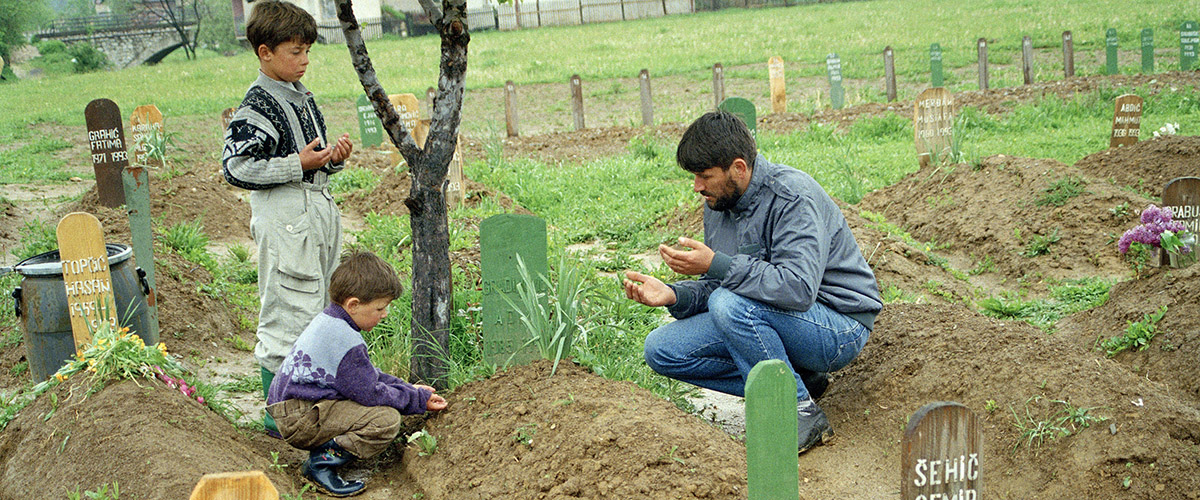 WE ARE LOOKING FORWARD TO A WORLD FREE FROM THE CRUEL AND ODIOUS CRIME OF GENOCIDE
WE ARE LOOKING FORWARD TO A WORLD FREE FROM THE CRUEL AND ODIOUS CRIME OF GENOCIDE
AVİM 18.12.2017 -
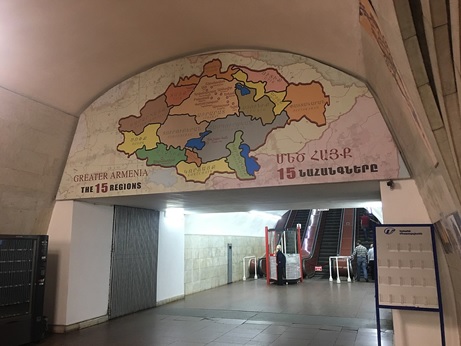 ARMENIA’S DESPERATE SEARCH FOR FOREIGN INTERVENTION AND ITS HISTORICAL ANTECEDENTS: “THREADS OF CONTINUITY”
ARMENIA’S DESPERATE SEARCH FOR FOREIGN INTERVENTION AND ITS HISTORICAL ANTECEDENTS: “THREADS OF CONTINUITY”
AVİM 14.10.2020 -
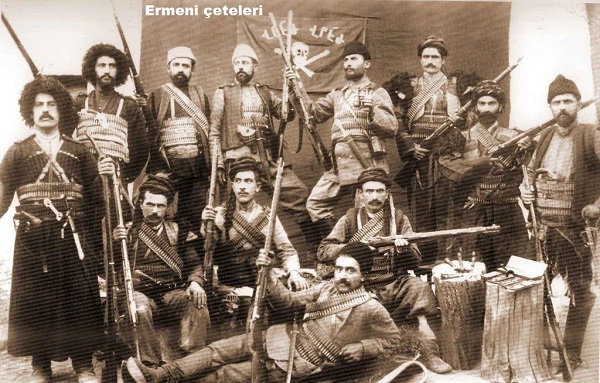 DASHNAK FEDAIS: HEROES OR CALAMITIES OF THE ARMENIAN PEOPLE?
DASHNAK FEDAIS: HEROES OR CALAMITIES OF THE ARMENIAN PEOPLE?
AVİM 20.12.2019 -
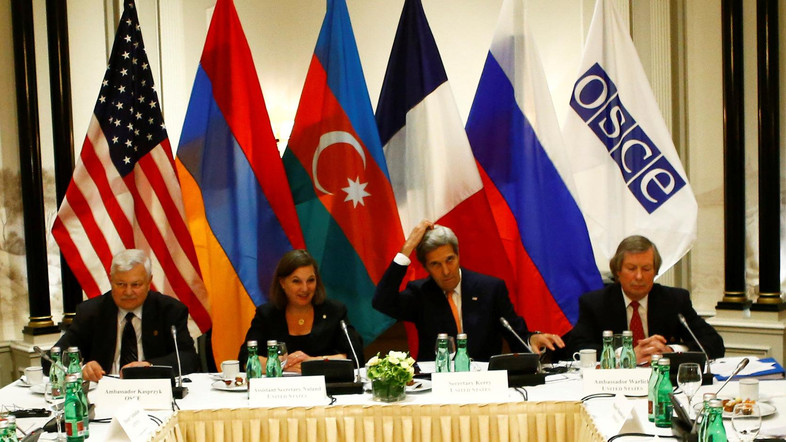 “QUIET DIPLOMACY” IN NAGORNO KARABAKH CONFLICT AND ARMENIAN ELECTIONS
“QUIET DIPLOMACY” IN NAGORNO KARABAKH CONFLICT AND ARMENIAN ELECTIONS
AVİM 24.04.2018
-
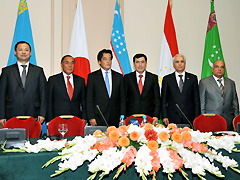 JAPAN’S POLICIES TOWARDS CENTRAL ASIA
JAPAN’S POLICIES TOWARDS CENTRAL ASIA
Özge Nur ÖĞÜTCÜ 31.03.2017 -
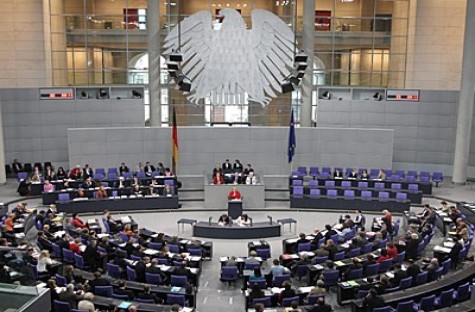 GERMANY OVER RECOGNITION OF THE 1915 EVENTS AS GENOCIDE
GERMANY OVER RECOGNITION OF THE 1915 EVENTS AS GENOCIDE
Cemre Dilay BOZTEPE 12.05.2015 -
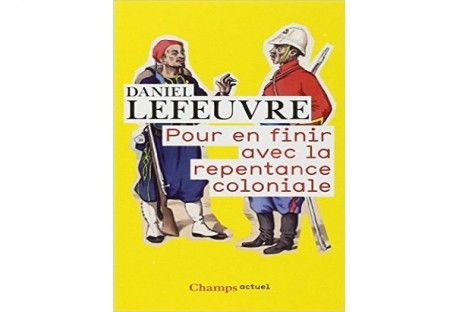 ROBERT FISK, BETWEEN FRANCOPHOBIA AND TURKOPHOBIA
ROBERT FISK, BETWEEN FRANCOPHOBIA AND TURKOPHOBIA
Maxime GAUIN 19.11.2015 -
 2016 SPECA ECONOMIC FORUM - REPORT
2016 SPECA ECONOMIC FORUM - REPORT
AVİM 12.12.2016 -
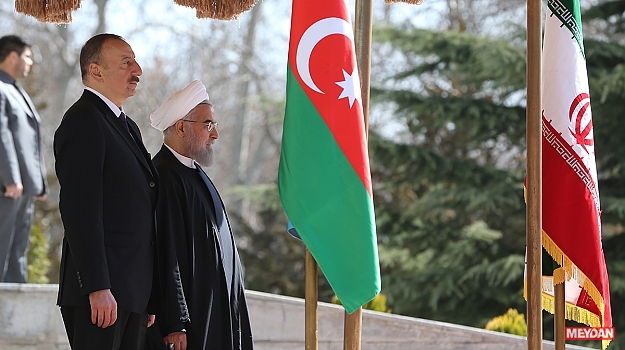 IRAN SEEKING NEW MARKETS IN THE SOUTH CAUCASUS: AZERBAIJAN
IRAN SEEKING NEW MARKETS IN THE SOUTH CAUCASUS: AZERBAIJAN
Özge Nur ÖĞÜTCÜ 18.03.2016
-
25.01.2016
THE ARMENIAN QUESTION - BASIC KNOWLEDGE AND DOCUMENTATION -
12.06.2024
THE TRUTH WILL OUT -
27.03.2023
RADİKAL ERMENİ UNSURLARCA GERÇEKLEŞTİRİLEN MEZALİMLER VE VANDALİZM -
17.03.2023
PATRIOTISM PERVERTED -
23.02.2023
MEN ARE LIKE THAT -
03.02.2023
BAKÜ-TİFLİS-CEYHAN BORU HATTININ YAŞANAN TARİHİ -
16.12.2022
INTERNATIONAL SCHOLARS ON THE EVENTS OF 1915 -
07.12.2022
FAKE PHOTOS AND THE ARMENIAN PROPAGANDA -
07.12.2022
ERMENİ PROPAGANDASI VE SAHTE RESİMLER -
01.01.2022
A Letter From Japan - Strategically Mum: The Silence of the Armenians -
01.01.2022
Japonya'dan Bir Mektup - Stratejik Suskunluk: Ermenilerin Sessizliği -
03.06.2020
Anastas Mikoyan: Confessions of an Armenian Bolshevik -
08.04.2020
Sovyet Sonrası Ukrayna’da Devlet, Toplum ve Siyaset - Değişen Dinamikler, Dönüşen Kimlikler -
12.06.2018
Ermeni Sorunuyla İlgili İngiliz Belgeleri (1912-1923) - British Documents on Armenian Question (1912-1923) -
02.12.2016
Turkish-Russian Academics: A Historical Study on the Caucasus -
01.07.2016
Gürcistan'daki Müslüman Topluluklar: Azınlık Hakları, Kimlik, Siyaset -
10.03.2016
Armenian Diaspora: Diaspora, State and the Imagination of the Republic of Armenia -
24.01.2016
ERMENİ SORUNU - TEMEL BİLGİ VE BELGELER (2. BASKI)
-
AVİM Conference Hall 24.01.2023
CONFERENCE TITLED “HUNGARY’S PERSPECTIVES ON THE TURKIC WORLD"









